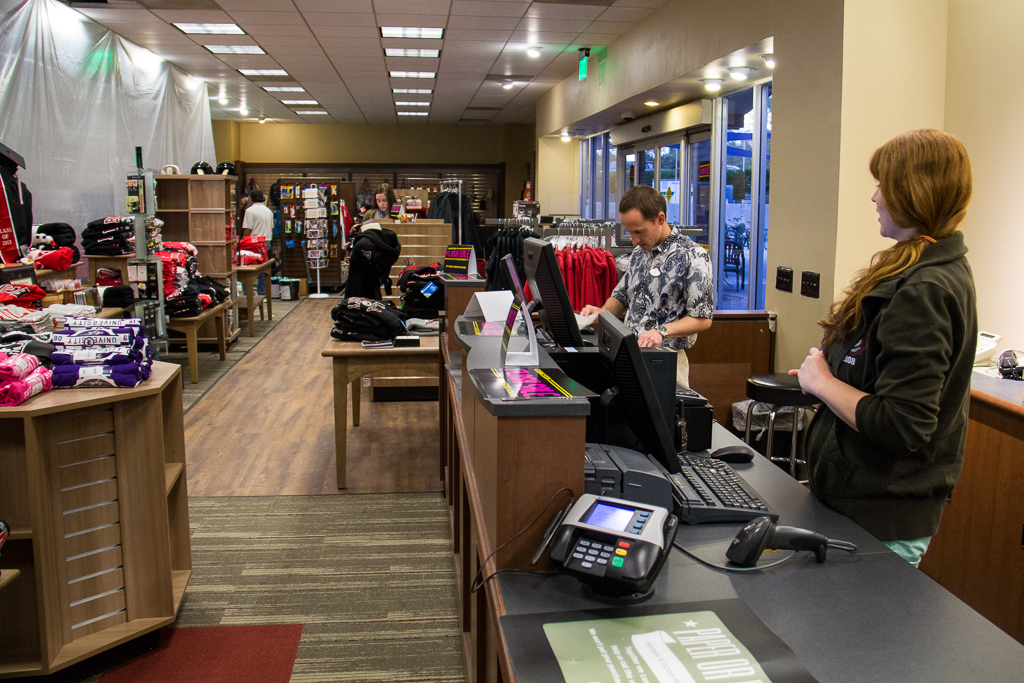
Students appreciate the convenience of the bookstore’s textbook buyback program but are frustrated with the low trade-in value.
The bookstore does not purchase books back for more than 50 percent of the books’ value, said Harry Edwards, manager of the Biola Bookstore, in an email. Often the price is lower depending on how in-demand the book is on campus.
“Buyback is driven purely by demand of book usage. If a book is being used for a subsequent term, the bookstore will pay back 50 percent until the needed quantity is met,” Edwards said.
However, if professors decide to stop using a book the next semester, the bookstore will offer a wholesale value of up to 30 percent in hopes it will be adopted by a faculty member elsewhere in the Follett network of 940 campus bookstores, Edwards said.
“As the official bookstore for Biola University, we are centrally devoted to maximizing Biola student access to needed materials,” Edwards said.
The bookstore ensures the books’ quality to guarantee that the next student is able to use the book, Edwards said. Normal wear and tear including highlighting, underlining and notes are acceptable, but in the interest of the next student, pages cannot be missing and the cover and binding need to be intact.
BENEFICIAL TO BOTH STUDENTS AND STORE
The buyback program benefits both students and the store by allowing the bookstore to acquire used text copies directly from the campus instead of ordering from publishers, Edwards said. This means more cash to students and more used book options available the next term. By visiting the bookstore, students are also able to get cash on-the-spot for their used materials, which drives down the total cost of materials, Edwards said.
In past semesters, junior sociology major Chanel Imani has been frustrated with the buyback system. The bookstore would not purchase her books if they were not for classes offered the next semester. Imani said she had to hold on to the books until the next fall or spring semester in hopes that the class will be offered then.
Some students prefer to use the program despite the low sum of money offered.
CONVIENCE TRUMPS Price
“I’m glad they offer the program,” said sophomore human biology major Natalie Stevenson. “I always say that I’m going to find a way to sell them back on Amazon or something, but I don’t really have time to do that. It’s just a lot easier to just to have it right here.”
However, some students do not feel that the money received for their used books is sufficient. Junior business major John Ivarson is still debating whether he will sell back his books.
“It depends on if it makes a profit. If they buy it back for more than I bought it, then yes. If they buy it back for less, then heck no. I’d rather die than sell back my books for lower price,” Ivarson said.







